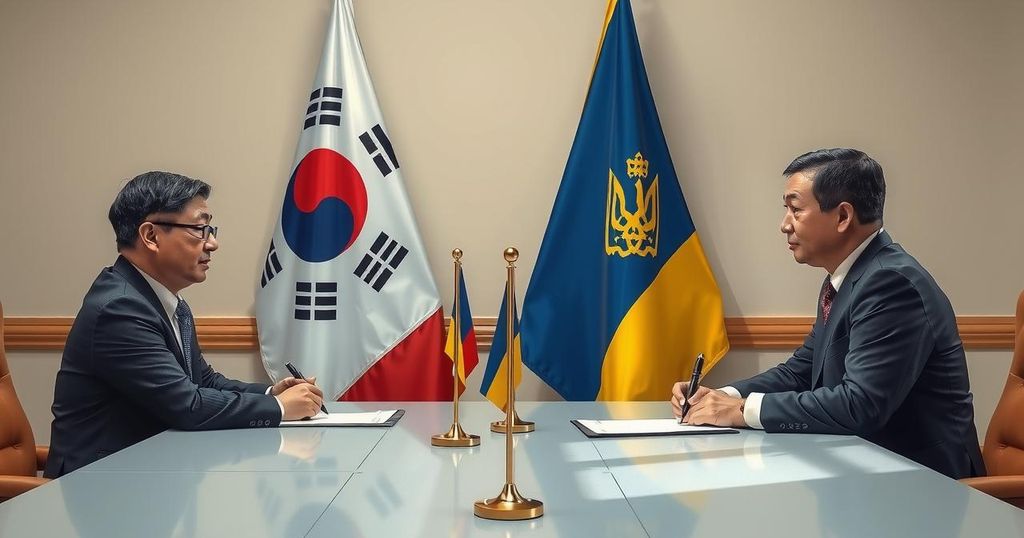South Korea and Ukraine Discuss Repatriation of North Korean Prisoners of War

Top diplomats from South Korea and Ukraine held discussions on the repatriation of North Korean POWs, emphasizing their potential defection under South Korean law and reaffirming cooperation for Ukraine’s peace and reconstruction efforts.
On Monday, top diplomats from South Korea and Ukraine engaged in a phone conversation regarding the repatriation of North Korean prisoners of war. South Korea’s Foreign Minister Cho Tae-yul discussed the situation of two North Korean soldiers captured by Ukraine during their conflict with Russia, with Ukrainian Foreign Minister Andrii Sybiha.
Minister Cho informed Sybiha that, as per South Korean law, the captured soldiers qualify as South Korean citizens and their defection will be accepted if they express such a desire. The two soldiers were taken into custody by Ukrainian forces in January while engaged in combat within Russia’s Kursk region.
Reports indicate that North Korea dispatched approximately 11,000 troops to support Russia last October and has sent additional forces between January and February to aid in the ongoing conflict against Ukraine. During their discussion, Cho emphasized South Korea’s commitment to collaborating with the international community for Ukraine’s peace restoration and post-war reconstruction.
Furthermore, Sybiha highlighted the ongoing high-level discussions between Ukraine and the United States aimed at terminating the conflict with Russia and expressed a desire for continued cooperation with the international community to achieve lasting peace in the region.
The dialogue between South Korea and Ukraine underscores the complexities of international relations, particularly regarding the treatment of military personnel in conflicts. The acknowledgment of captured North Korean soldiers as potential defectors under South Korean law illustrates the unique legal considerations at play. Additionally, both nations are committed to collaborative peace efforts amidst ongoing tensions in the region.
Original Source: www.koreatimes.co.kr








